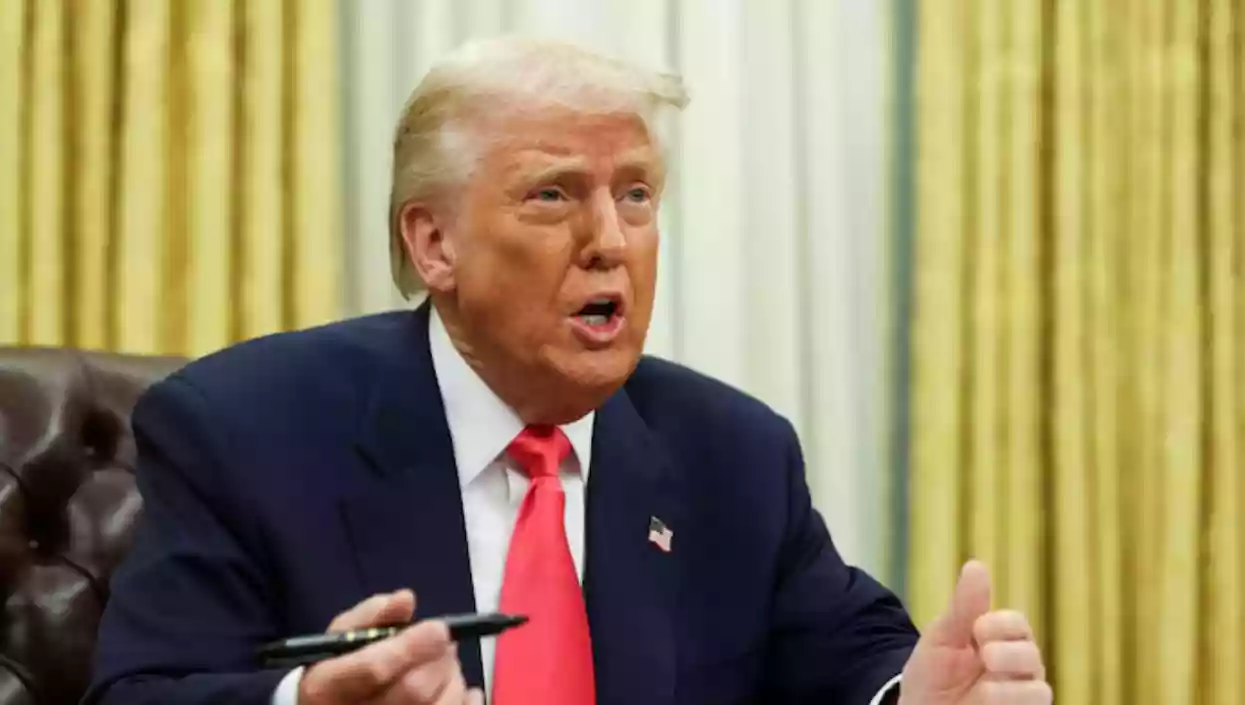.gif)
.gif)

US President Donald Trump has announced a 25% tariff on all imports from countries purchasing oil or gas from Venezuela, a move that is set to impact major economies, including India and China. The announcement, made via his social media platform Truth Social, comes amid a diplomatic rift between the US and Venezuela over deportation policies. The new tariff will take effect from April 2, adding financial strain to nations relying on Venezuelan crude.
Trump justified the tariff by claiming that Venezuela has been “very hostile” to the US and accused the country of harboring the gang Tren de Aragua. In addition to this tariff on trading partners, Venezuela itself will also face a secondary tariff for allegedly allowing gang members to cross into the US illegally. The Trump administration had earlier suspended deportation flights to Caracas after accusing the Venezuelan government of failing to accept repatriated migrants. However, Venezuela recently resumed accepting deportees following negotiations with Washington.
The impact of this tariff is expected to be significant, especially for China, Venezuela’s largest oil buyer. In 2023, China accounted for nearly 68% of Venezuela’s crude oil exports. Since the Trump administration has already imposed a 20% tariff on Chinese imports, the additional 25% tax could further escalate tensions between Washington and Beijing. Other major buyers of Venezuelan oil, including Spain, Russia, Singapore, and Vietnam, will also face higher costs.
India is also likely to be affected by this decision, given its substantial crude oil imports from Venezuela. In December 2023 and January 2024, India was the largest buyer of Venezuelan crude, importing approximately 191,600 barrels per day in December, which surged to 254,000 barrels per day in January. India’s purchases accounted for nearly half of Venezuela’s total oil exports at the time. In 2024 alone, India imported 22 million barrels of Venezuelan crude, making up 1.5% of its total oil imports.
The US move could force India to reassess its crude oil sourcing strategies. While India has diversified its oil imports, Venezuelan crude remains a cost-effective option. A 25% tariff could either make Venezuelan oil unviable or lead to renegotiations with alternative suppliers such as Russia, the UAE, and Saudi Arabia. Experts suggest that India may explore discounted oil deals with Venezuela to counterbalance the tariff's impact.
As the global energy market reacts to Trump's latest protectionist measure, analysts warn of potential ripple effects on global trade and diplomatic relations. The move could also reignite discussions about energy security and trade dependencies among oil-importing nations. With China and India among the most affected, geopolitical shifts in oil trade dynamics are likely to follow in the coming months.